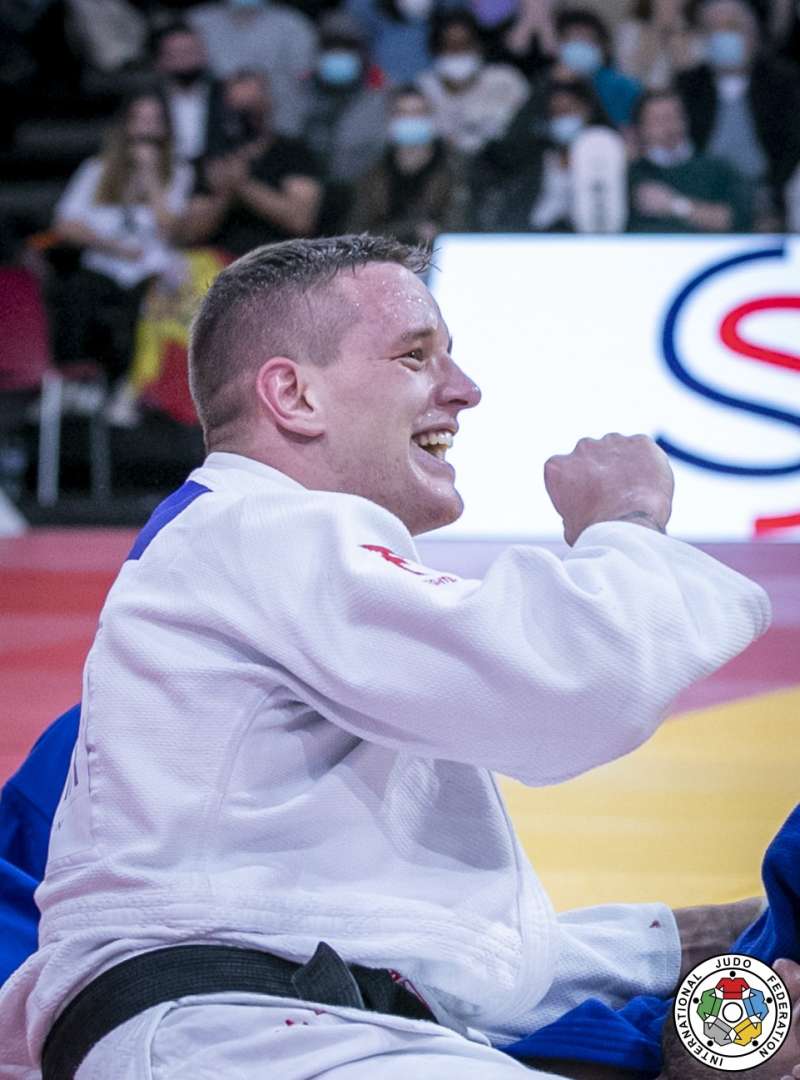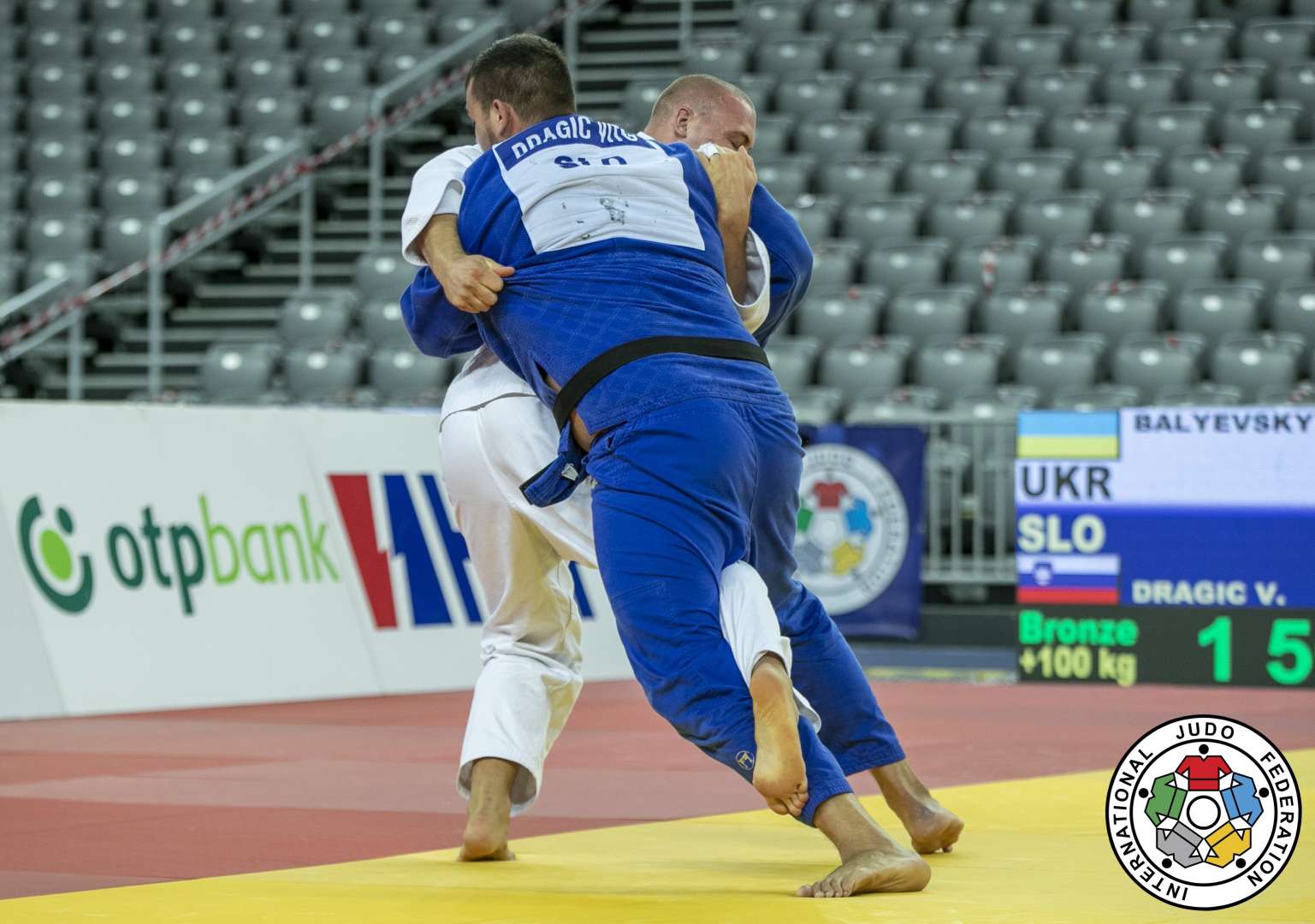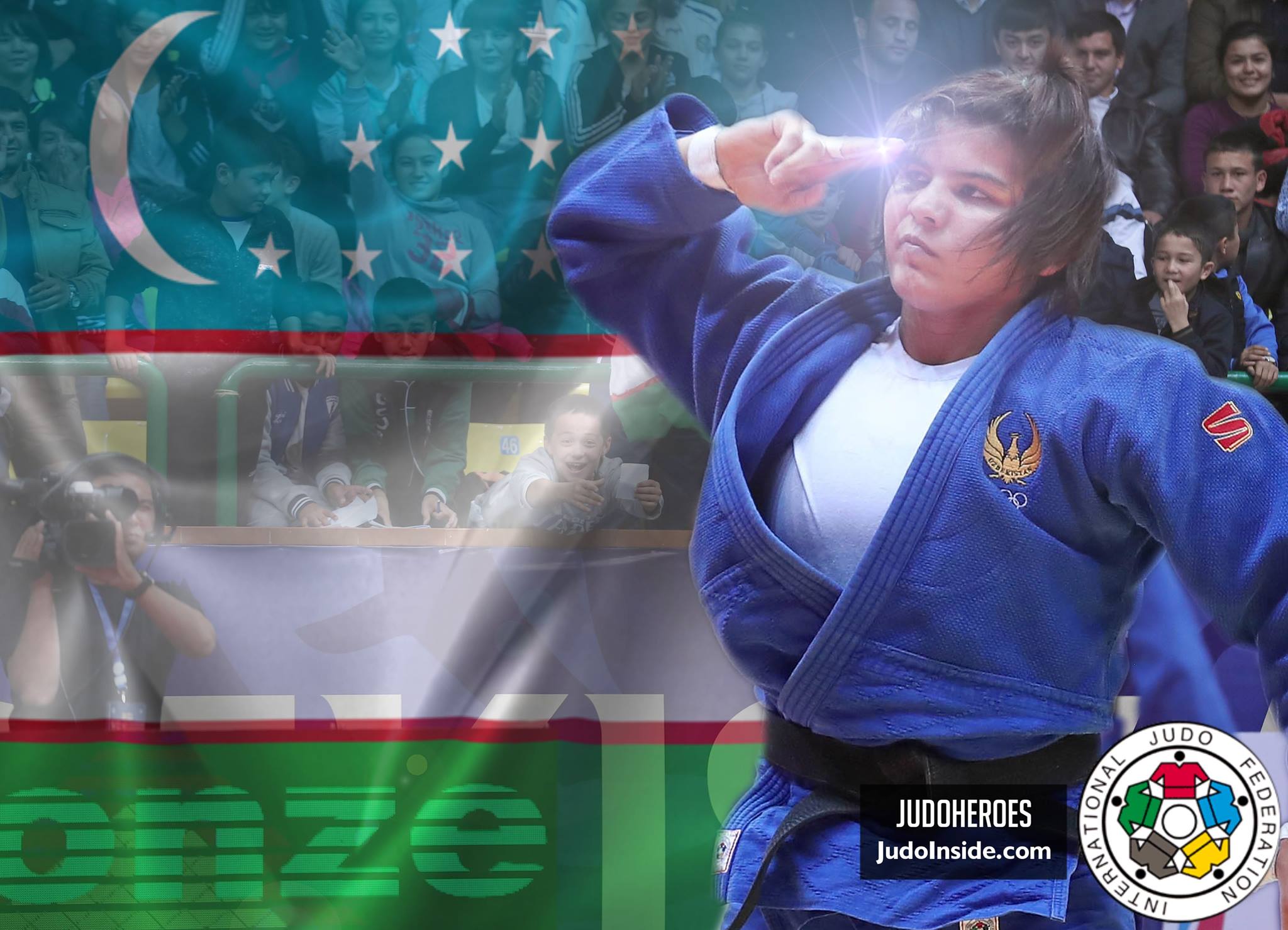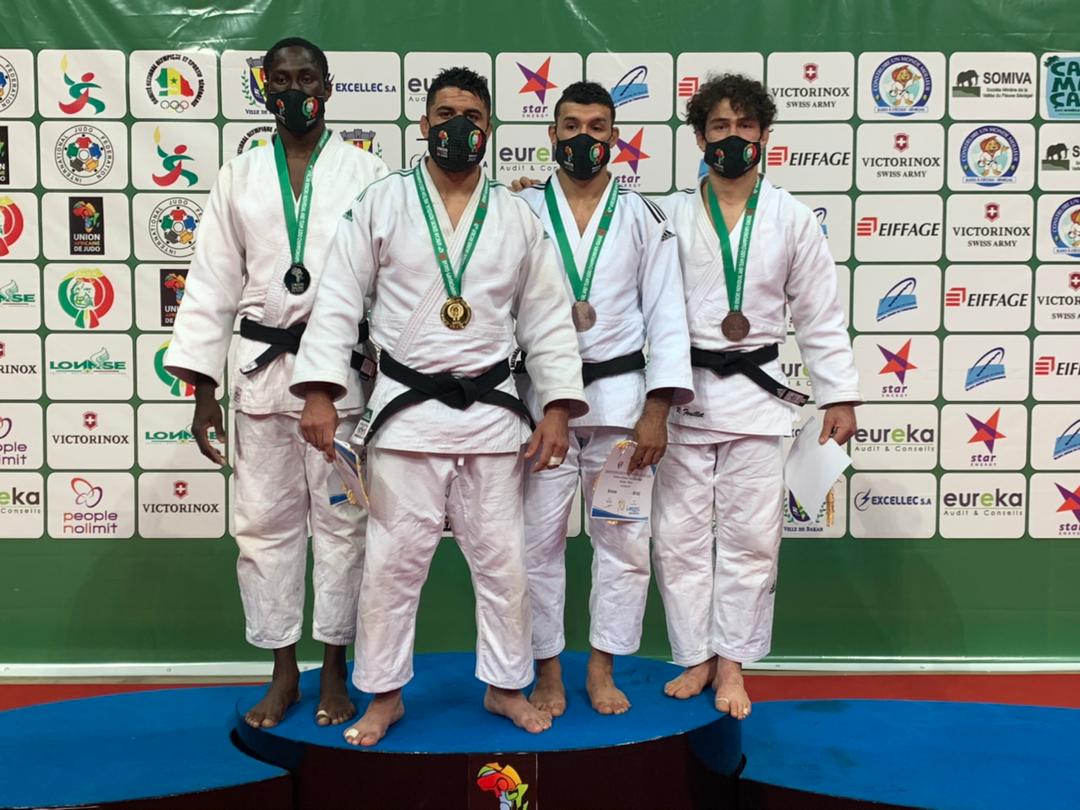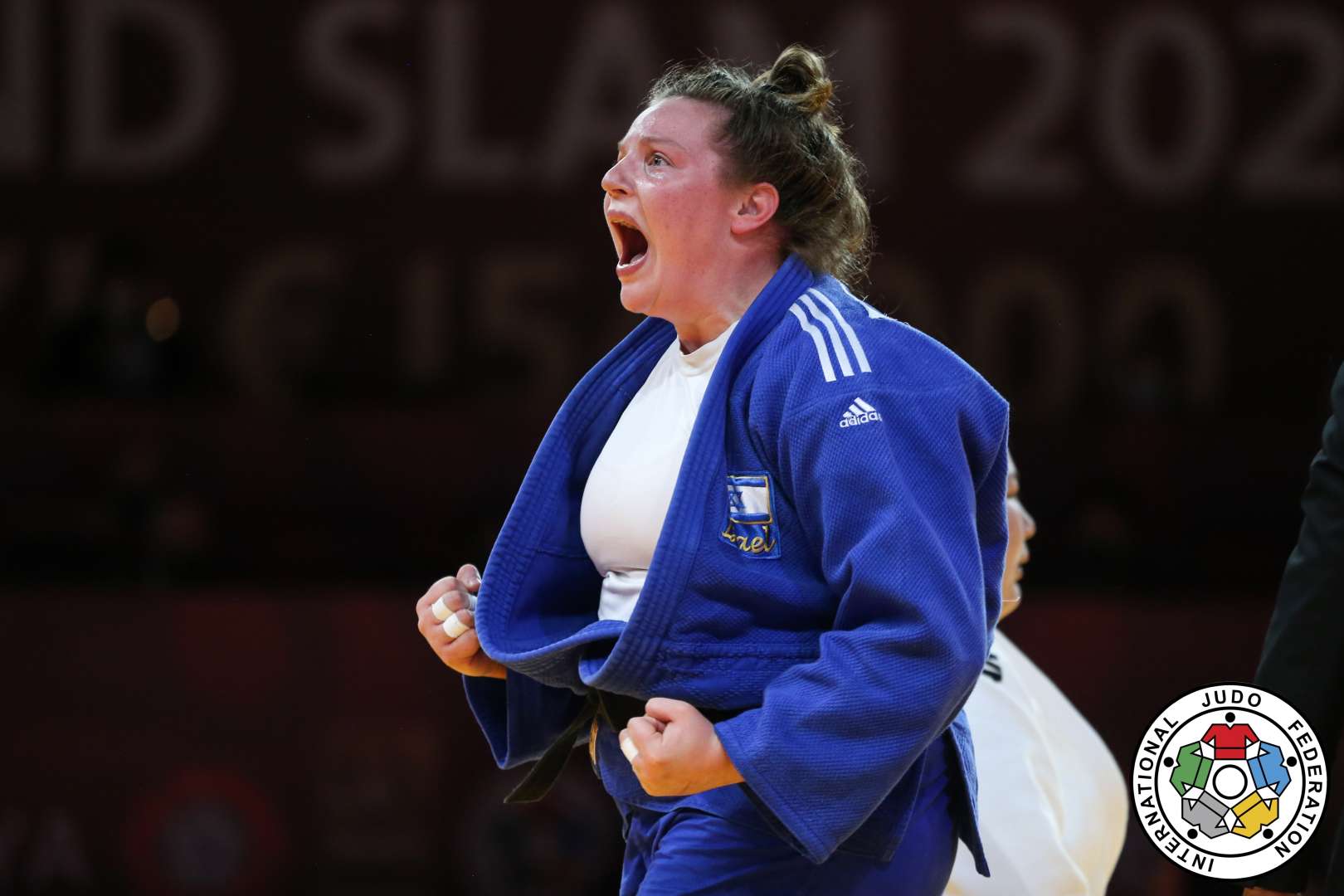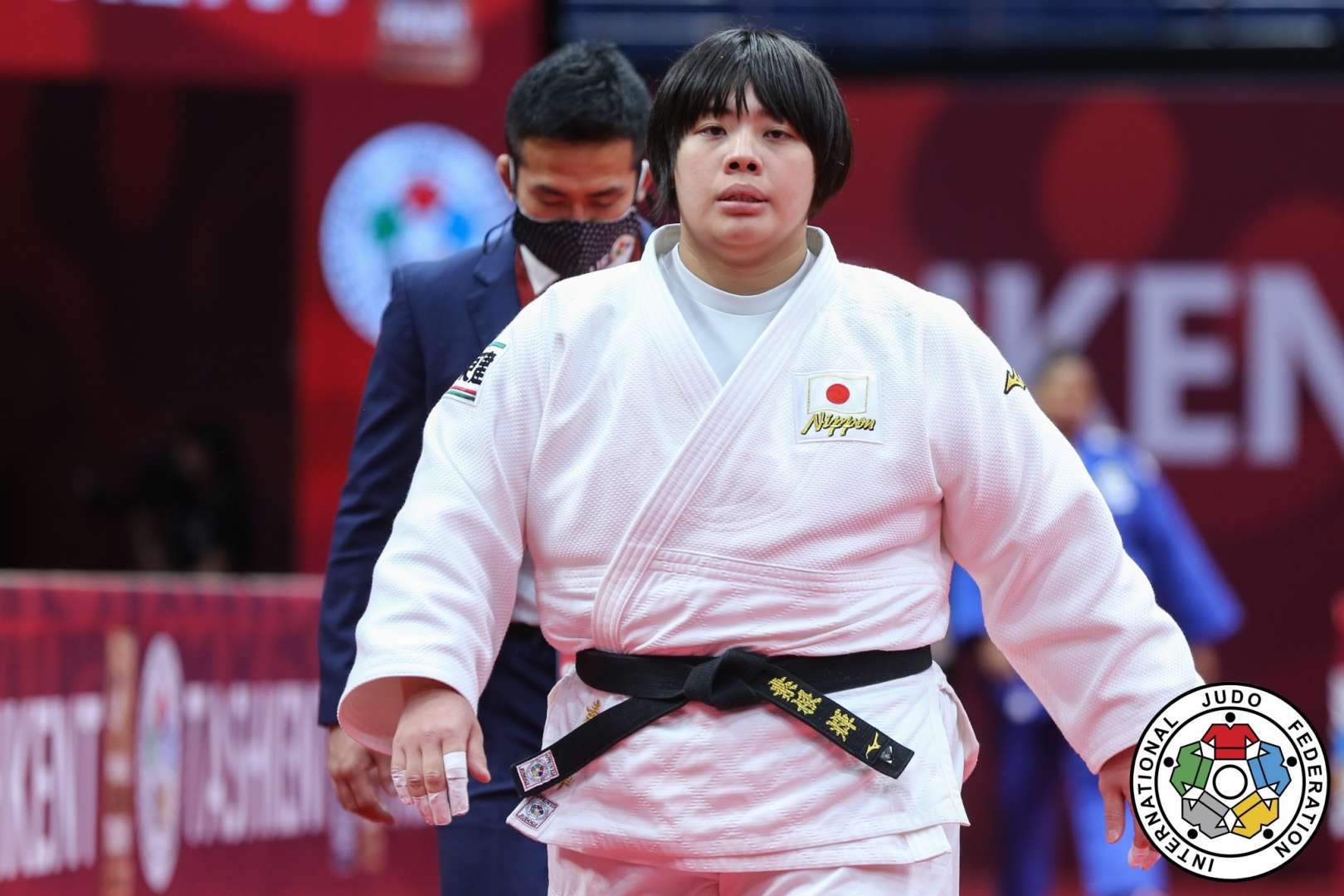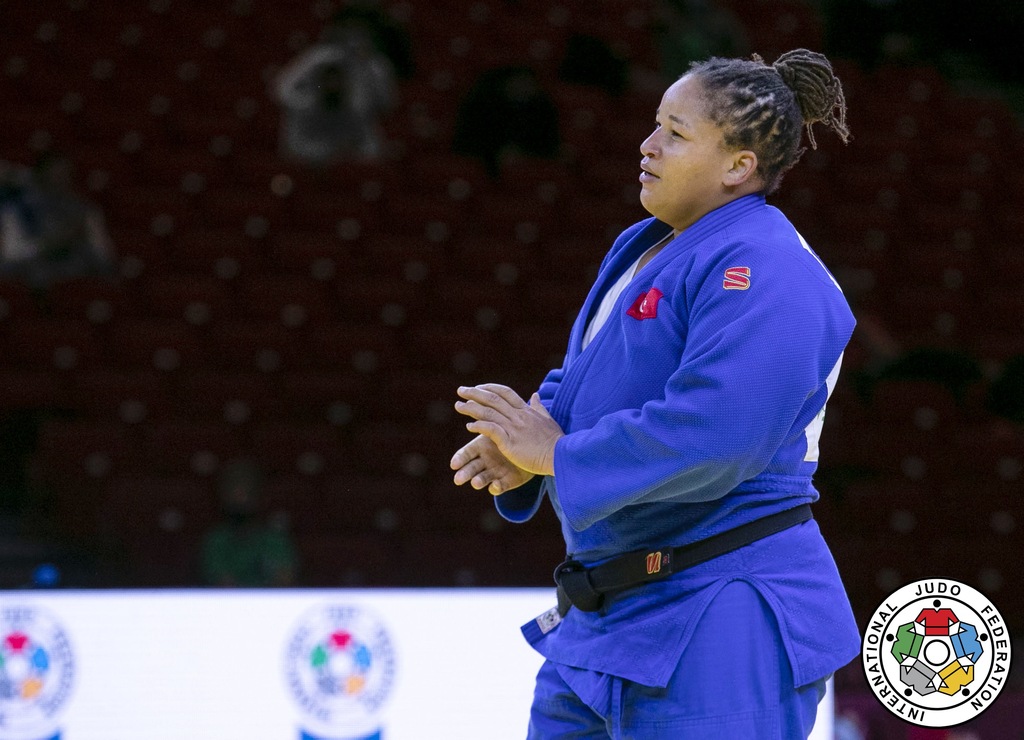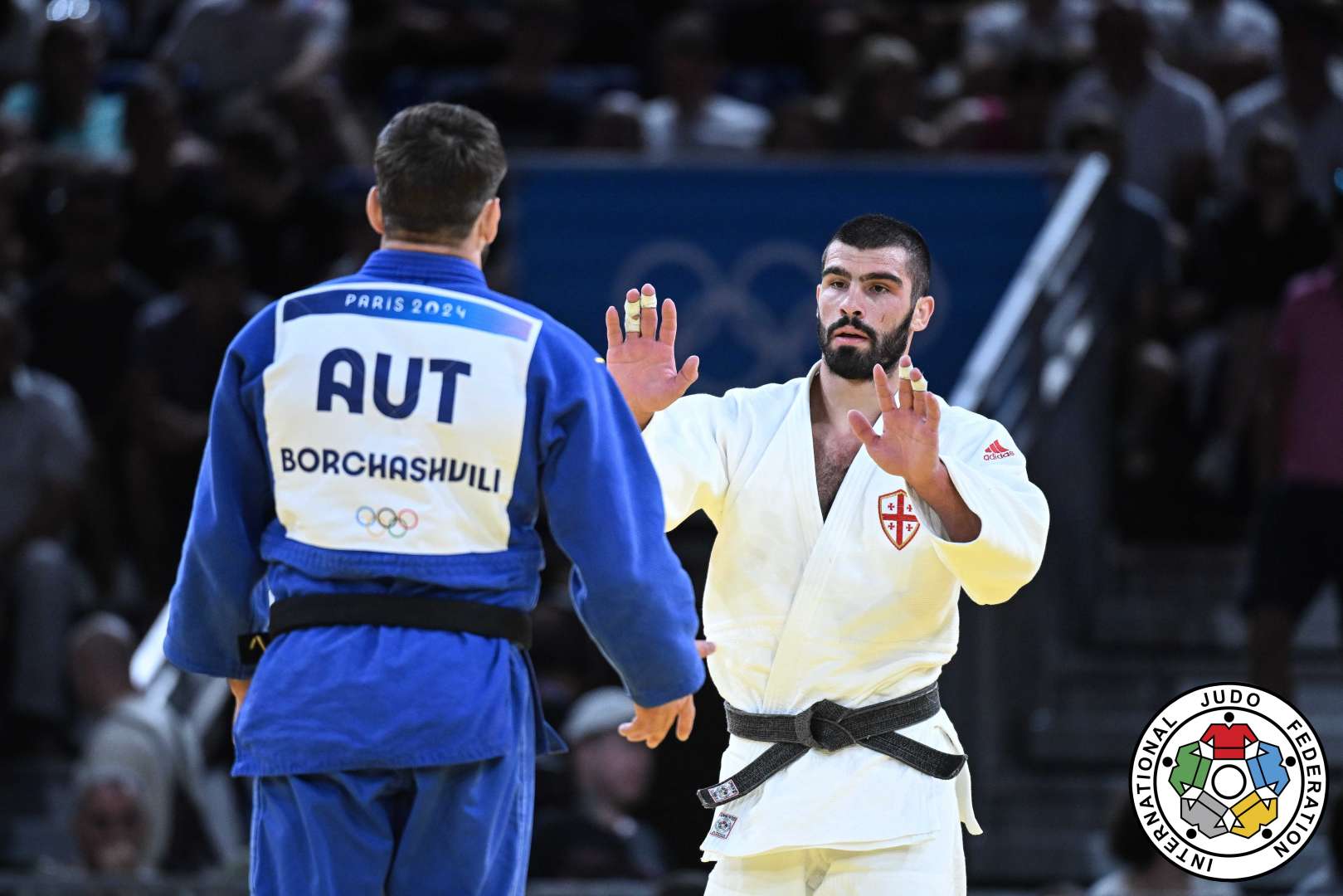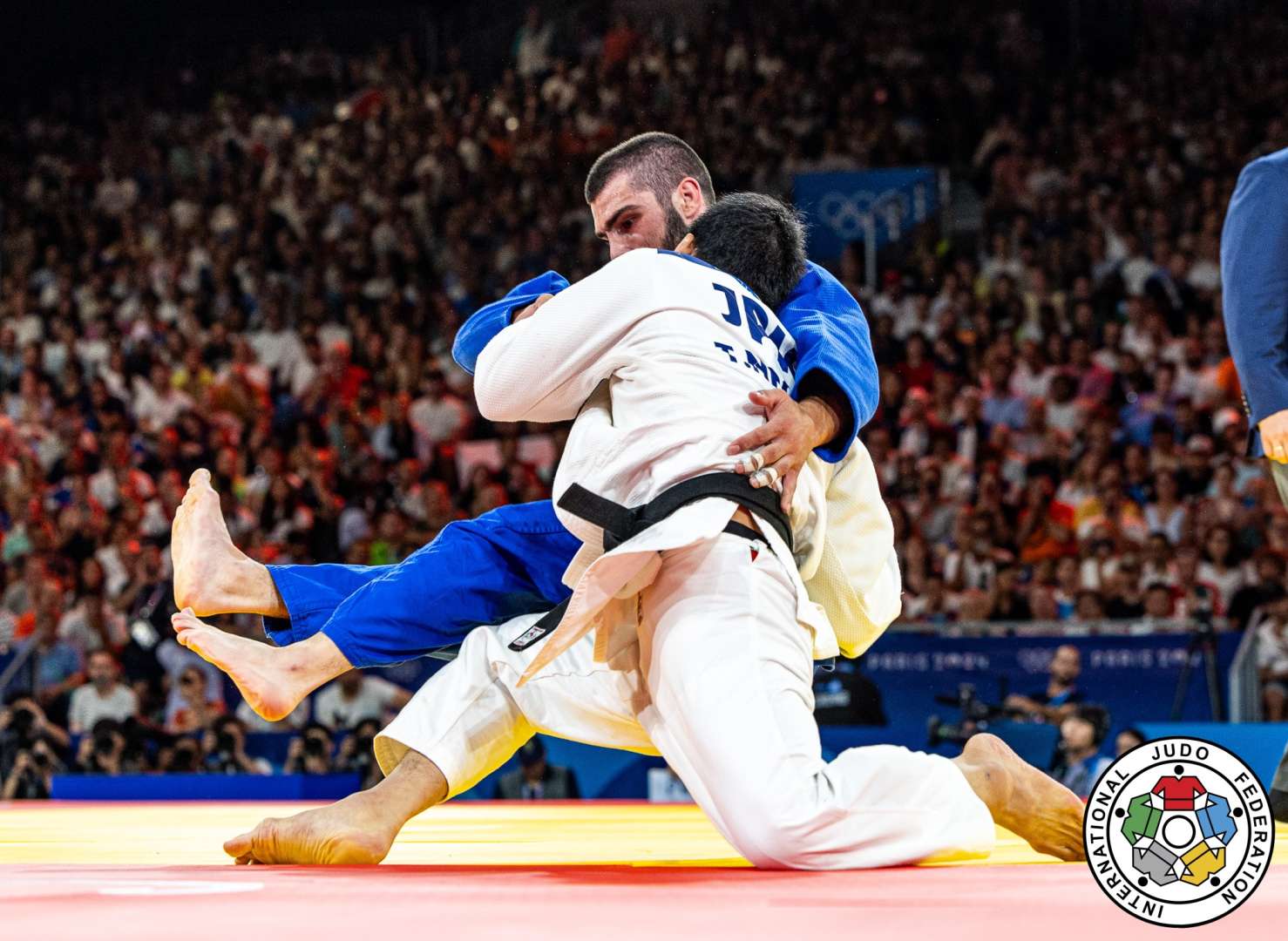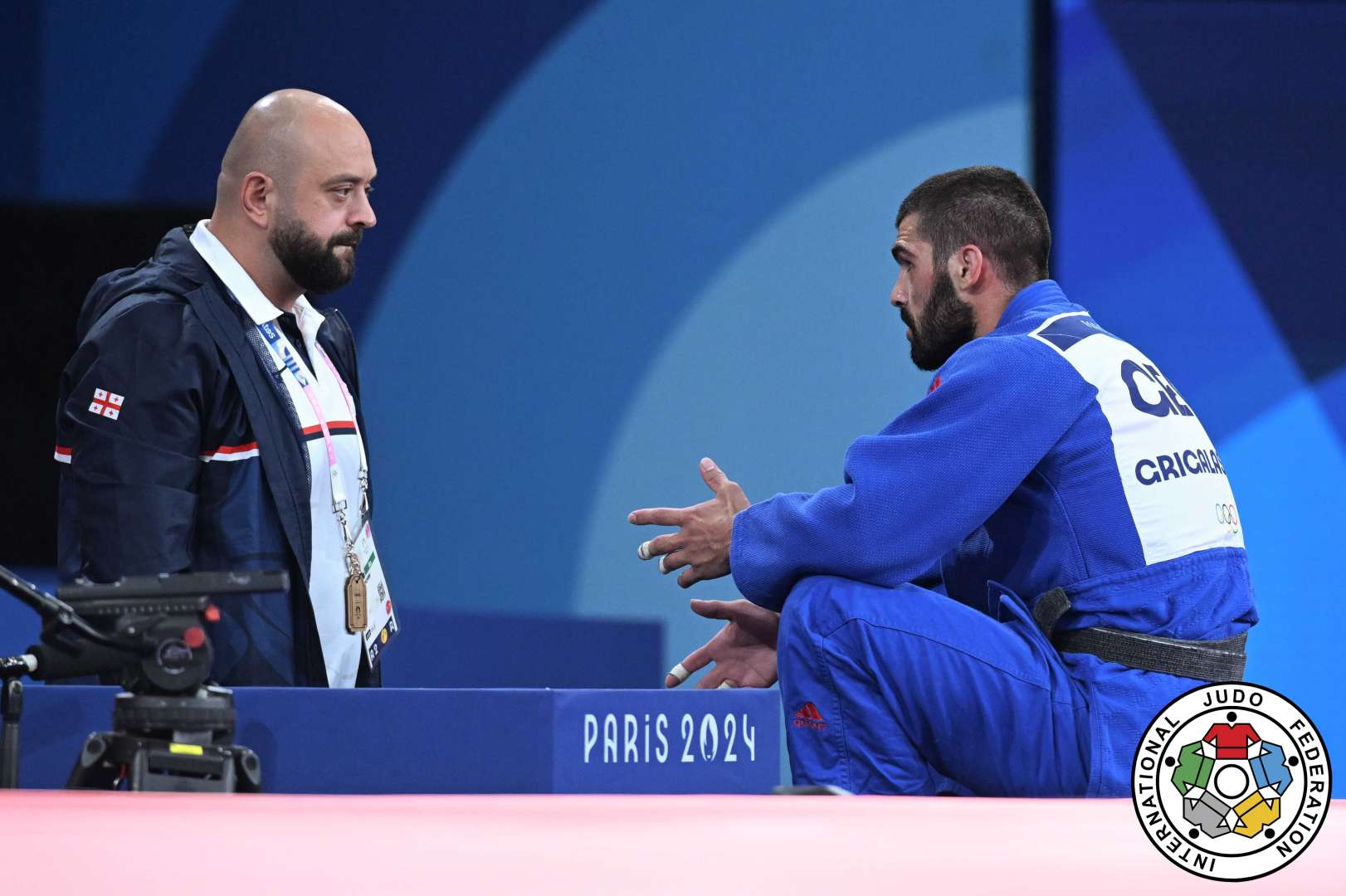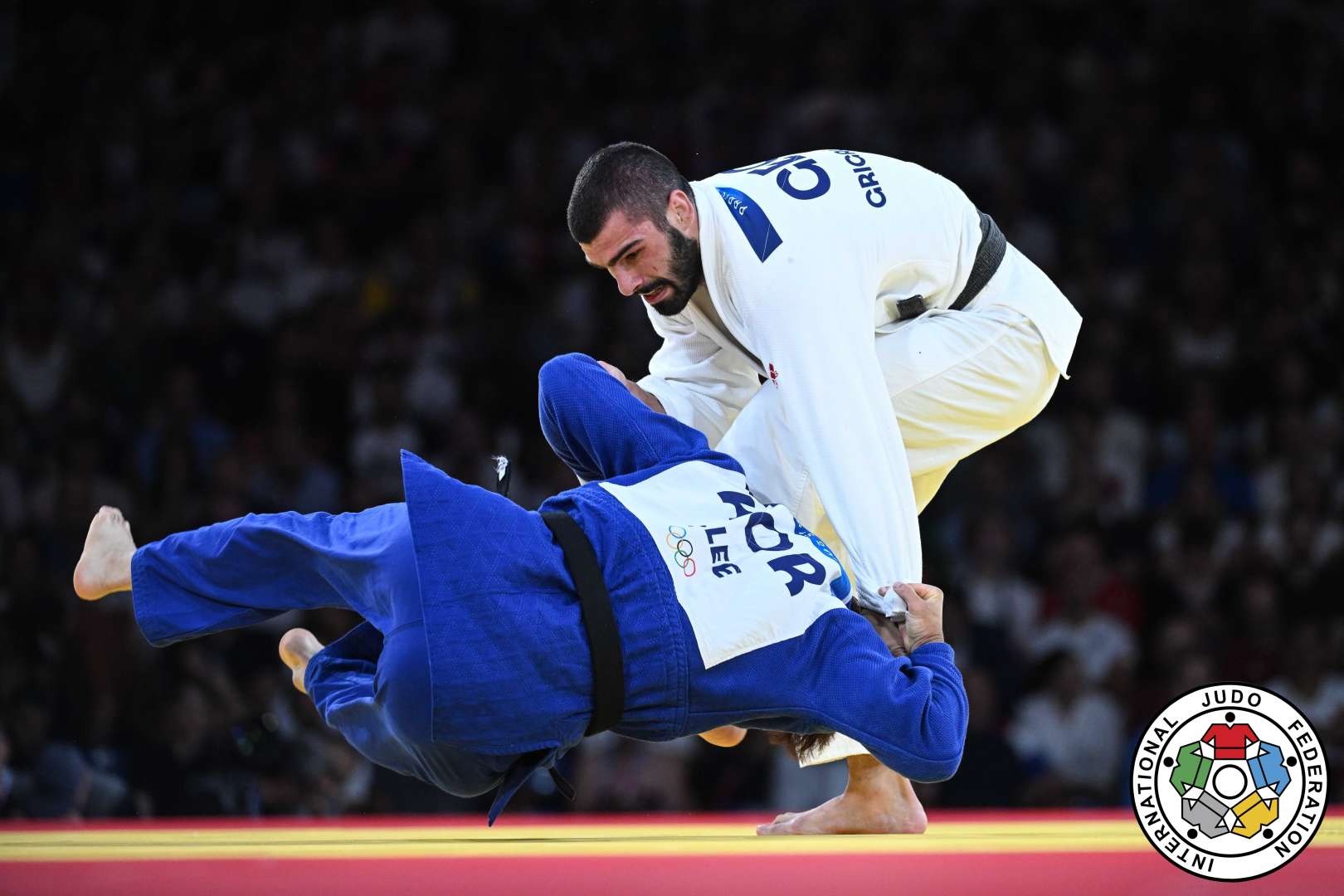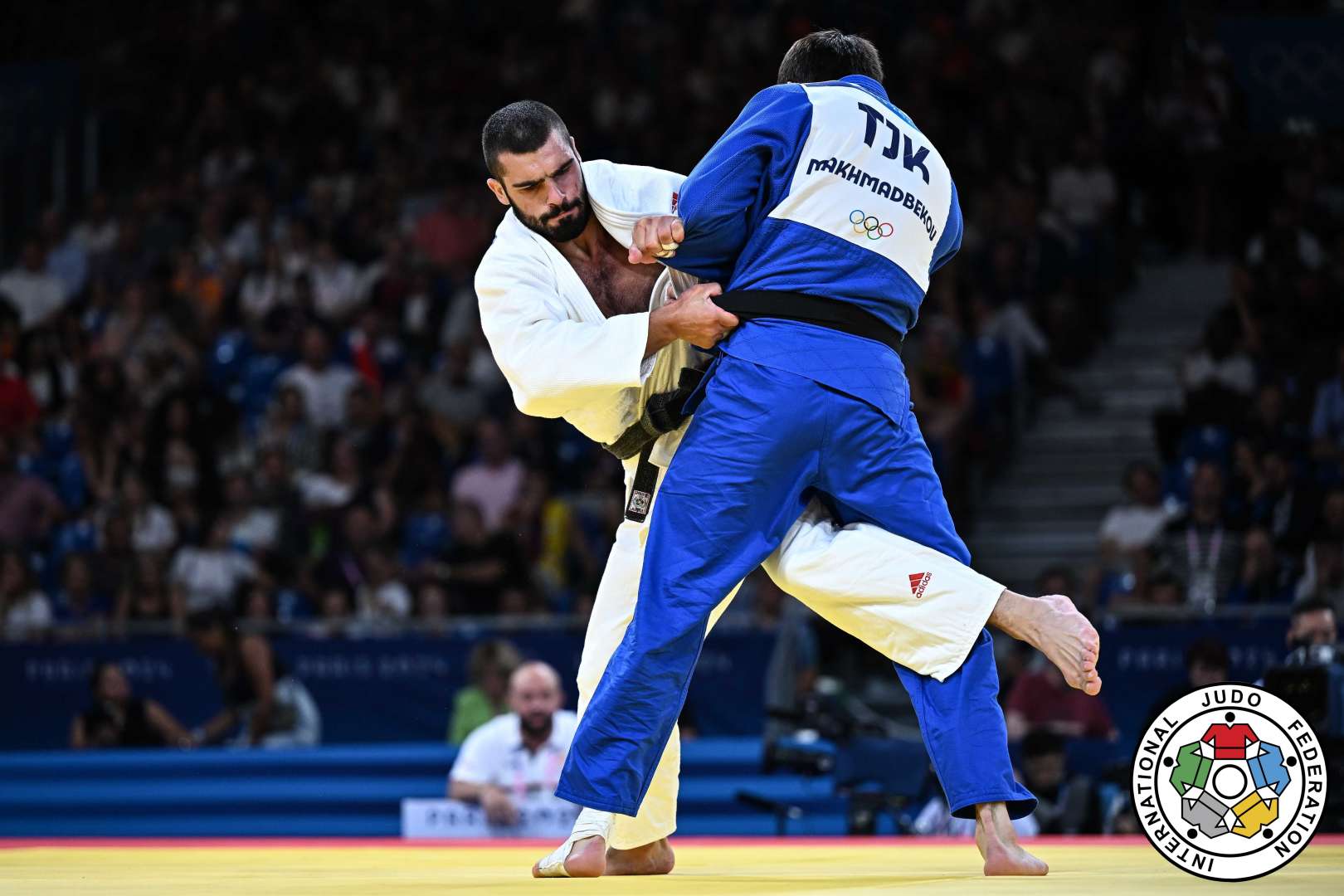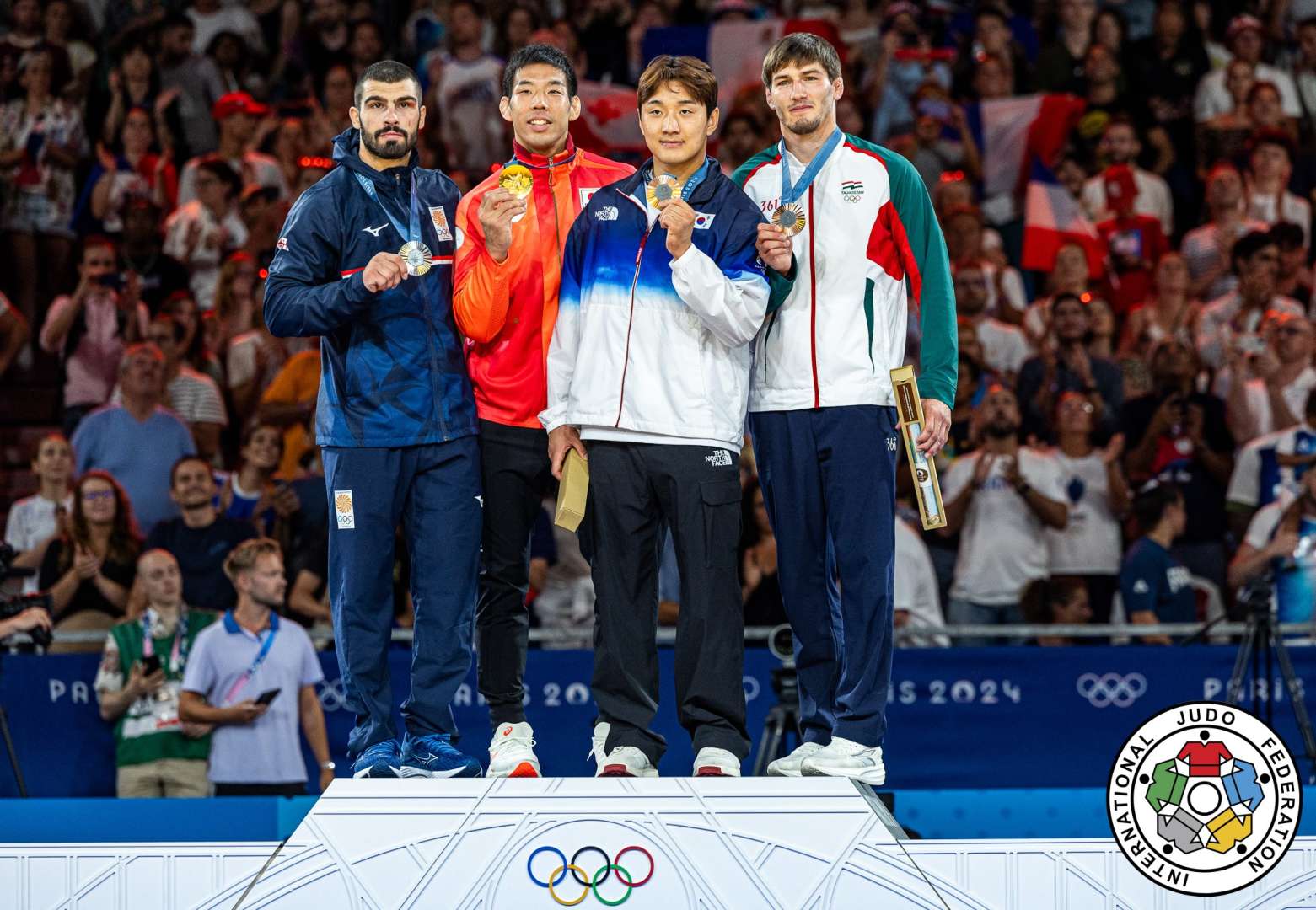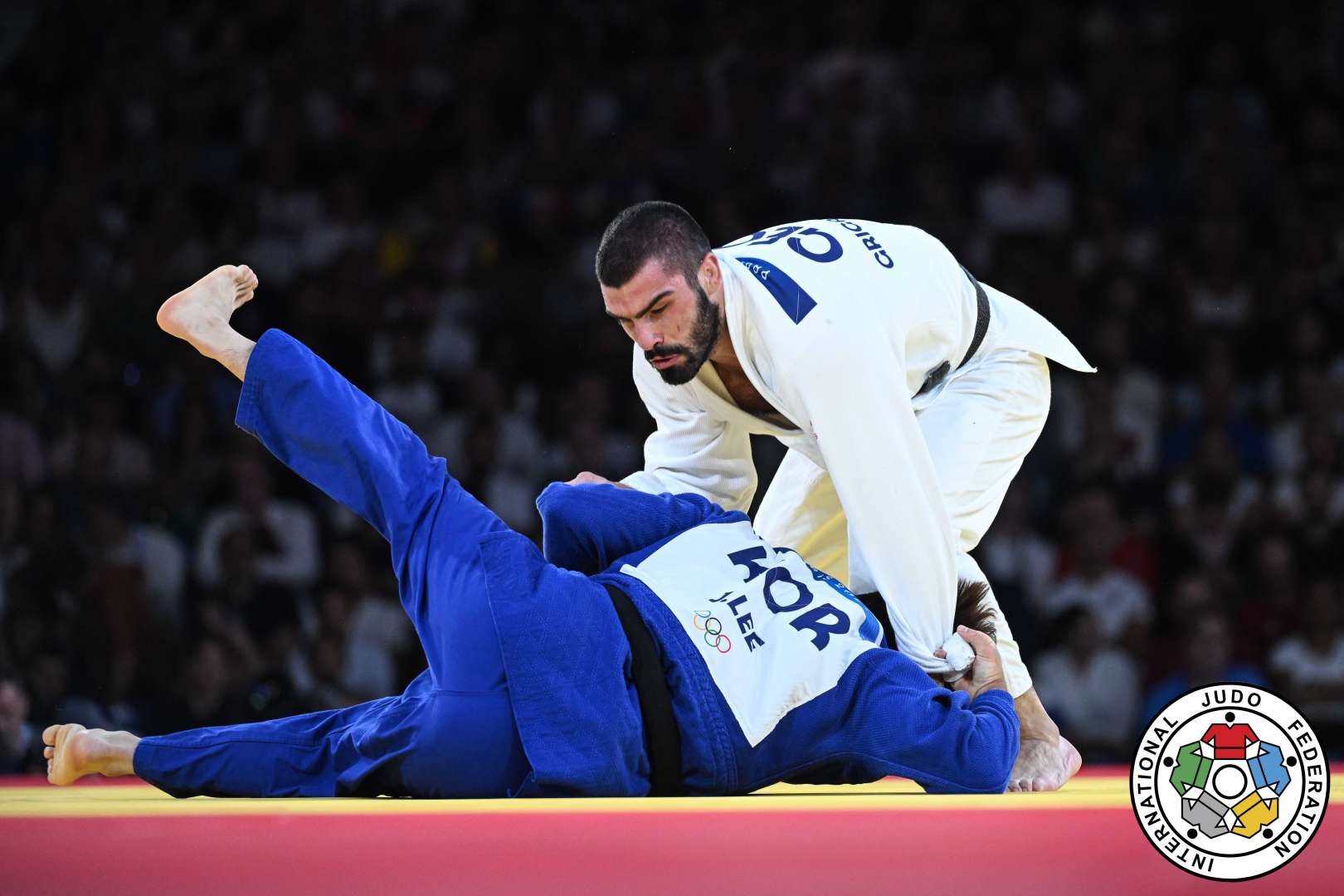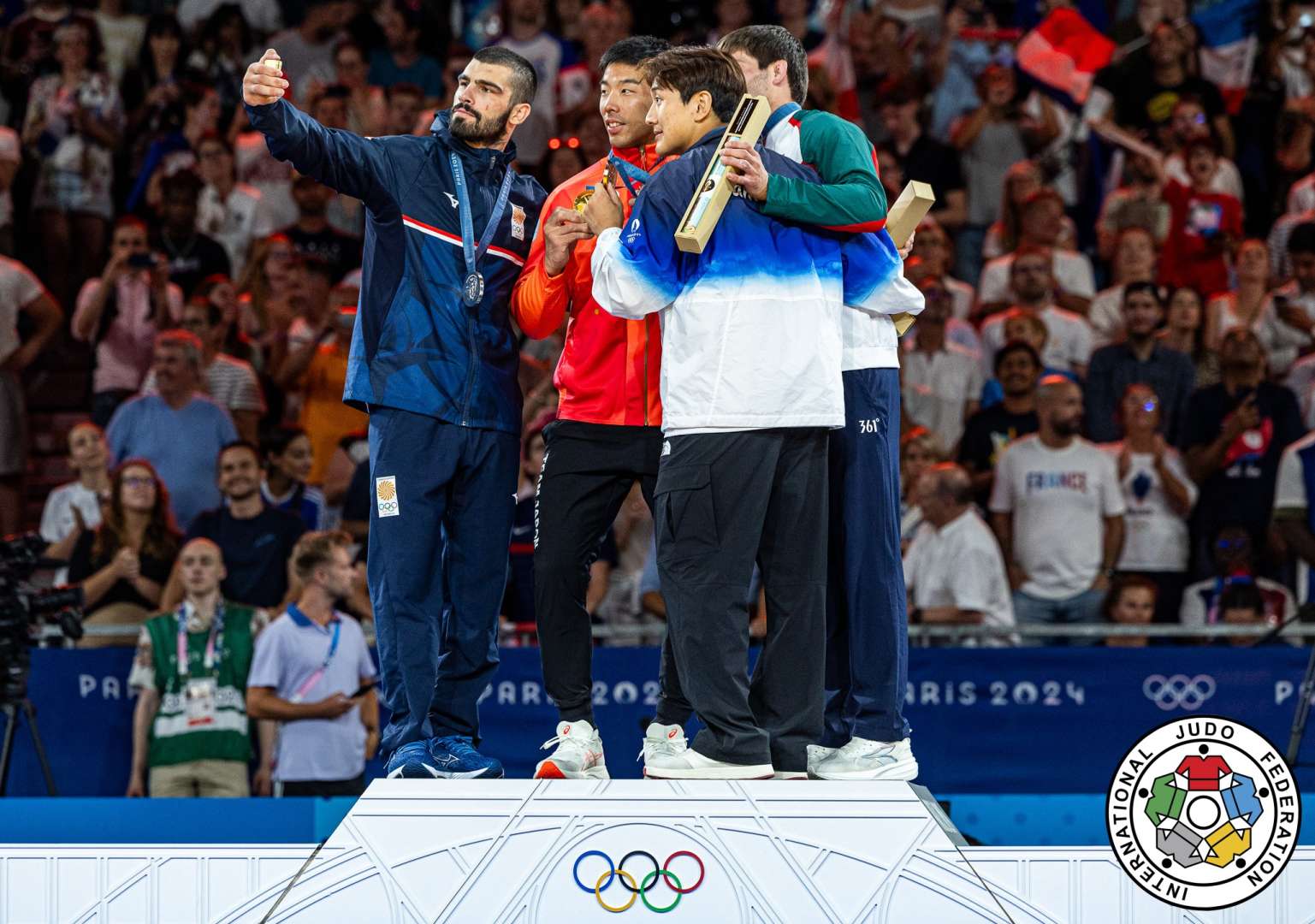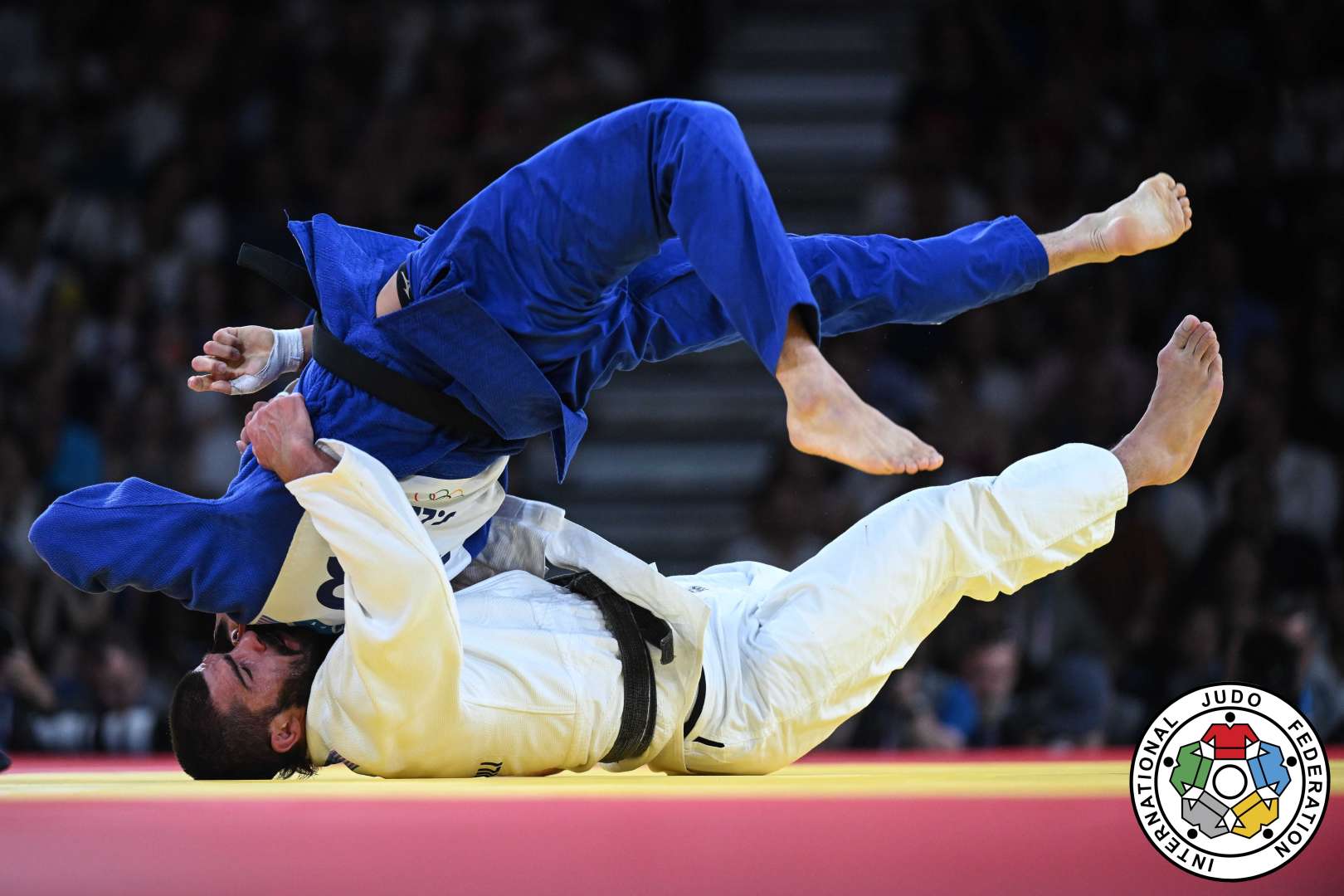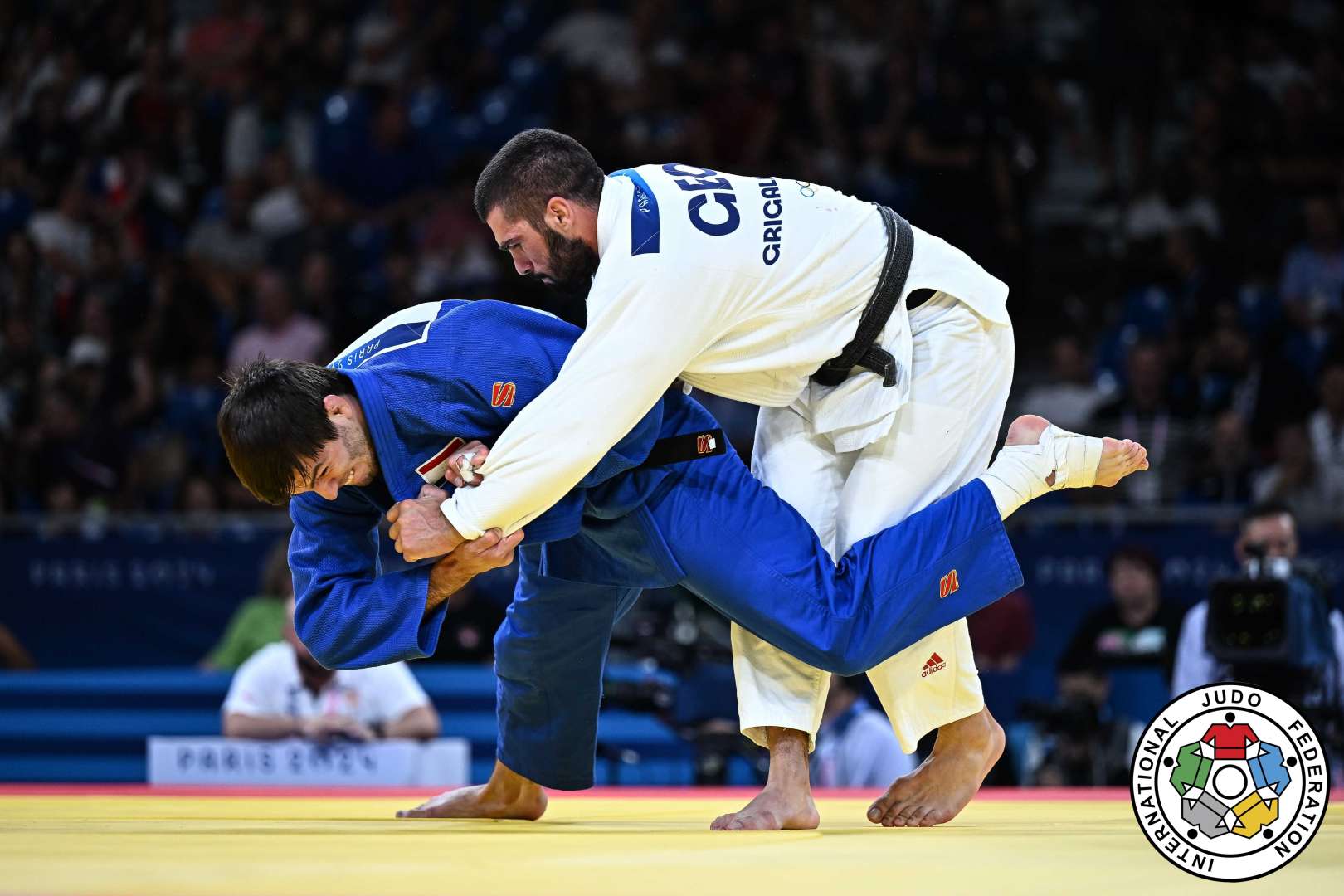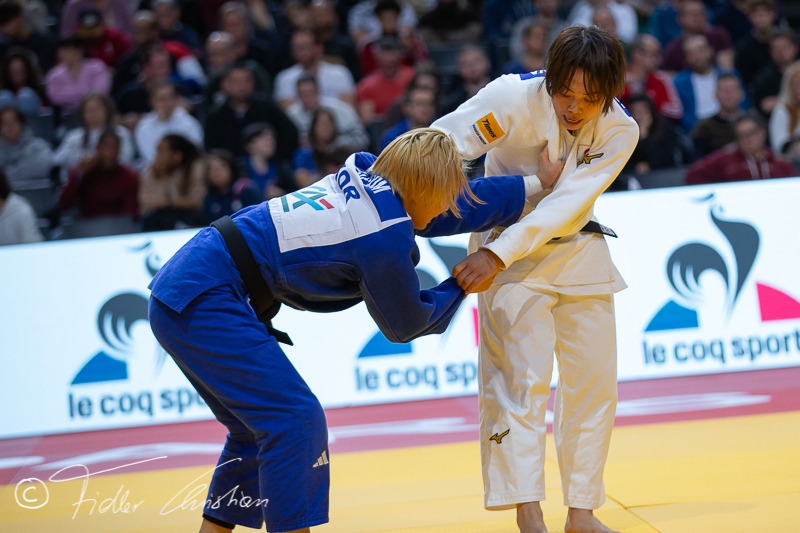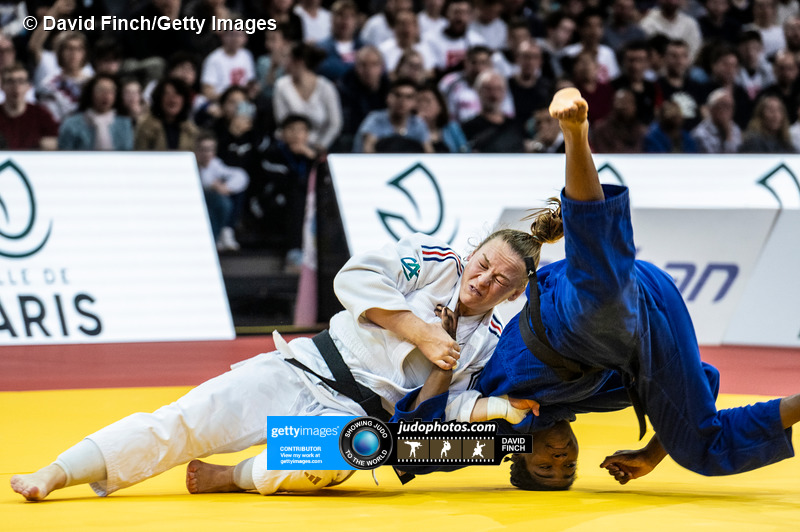Spain wins the Mediterranean Games judo tournament
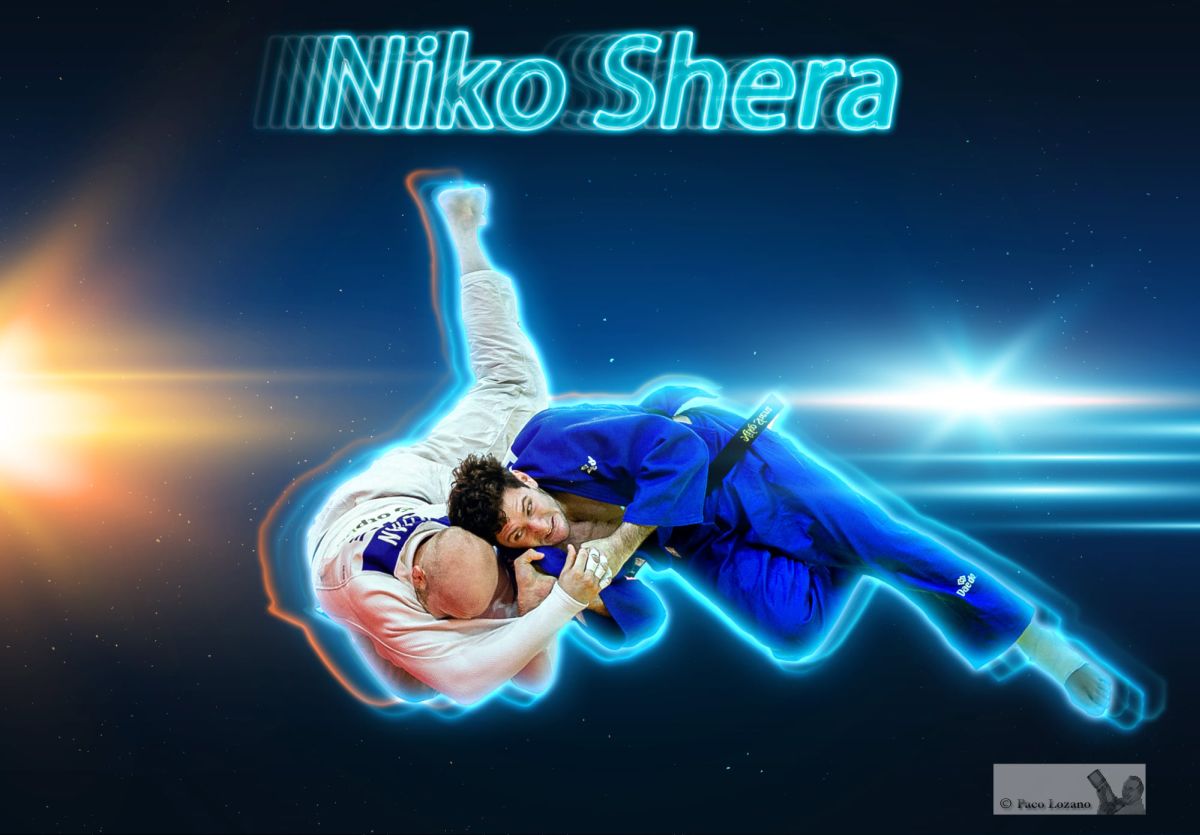
 1 Jul 2022 22:50
1 Jul 2022 22:50

 Paco Lozano / Judo y Otros
Paco Lozano / Judo y Otros
Spain, Kosovo and Turkey are the three countries with three gold medals. This was the outcome of the third day of the Mediterranean Games in Oran. On the last day, Turkey collected another two gold medals.
It was a pleasure to see some of the judo stars in Oran on this spectacular day with the current African champion Benamadi (ALG) U90kg, Spain attended with world champion Sherazadashvili, Serbia’s European Championships silver medallist Brasnjovic and former world number one U90kg Aleksandar Kukolj. Much to look out for and it didn’t disappoint.
Kosova added another medal and scored each day of the games. This time it was Loriana Kuka (KOS) who finished the quarter-final U78kg in ne-waza by applying tate-shiho-gatame and in the semi-final she used juji-gatame against Pavic (CRO). This early trend for winning in ne-waza continued on the other side of the draw with Chloe Buttigieg (FRA) winning her semi-final against Ouallal (ALG) by scoring waza-ari in tachi-waza with a combination of o-soto-gari and nidan-ko-soto-gari but she continued in ne-waza with a holding technique. The final was set and it was Kuka who demonstrated her best judo in Oran taking gold with a tani-otoshi for waza-ari and a third gold medal for Kosovo giving them a second place in the medal ranking with five medals in total.
The first bronze medal U78kg was won by the Croatian judoka Pavic, who applied kesa-gatame, yet more great groundwork to close out this match. The second bronze medal was eventually won by Yilmaz (TUR) who won the repechage final in ne-waza too, applying a skillful wiki-gatame. Her medal contest brought her stand-up game to the fore, with a waza-ari from a seoi-nage being enough to buy her ticket to the podium.”
In the women’s heavyweight you could have expected Nihel Cheikh Rouhou (TUN) in the final, but she took silver medals twice at previous Mediterranean Games, this time it should work, isn’t it? She scored ippon in the quarter-final throwing with a low o-goshi, won the semi-final too, beating a French opponent and then found herself in the final where she met an old adversary, Kayra Sayit (TUR). Sayit reached the final well, having utilised ne-waza and transitions stylishly, with an especially good juji-gatame finish in her quarter-final, again silver for Cheikh Rouhou and gold for Turkey.
Larisa Ceric (BIH) is very experienced on the World Judo Tour and she showed that in her approach to all contests. Despite a loss earlier in the day she was able to come back to form to win the repechage and then the bronze medal with clean transition. Coralie Hayme (FRA) won the other bronze. She brought some different techniques to the heavyweight class and we enjoyed seeing her work through the sutemi-waza range.”
Turkey sent an amazing team and the results are there. In the men’s U90kg division Mihail Zgank (TUR) won his quarter-final with a skillful transition from seoi-nage into okuri-eri-jime and then the semi-final with an o-soto-gari against Mosakhlisvili (ESP). To be honest, he looked a cut above the rest from the very beginning but as a regular medallist on the World Judo Tour and with a world silver medal already won, it’s no surprise that we found him in the final in Oran.
Theodoros Tselidis (GRE) won his first contest and the quarter-final, both by waza-ari and both using kata-guruma. In the semi-final he scored waza-ari with sumi-otoshi against Toni Miletic (BIH). Fit and strong but without the big finish, he moved into the final to meet Zgank. It was the Turkish judoka who won but only on penalties, bringing a flat conclusion to an otherwise strong weight group.
Tristani Mosakhlisvili (ESP) won first contest with spectacular transition from his opponent’s throw which he switched to his advantage on the floor and held for ippon. Despite a loss in the semi-final, he went on to win the first bronze countering Pirelli’s (ITA) ura-nage and throwing with o-goshi.
Miletic (BIH) applied sode-guruma-jime to win his first contest and used ura-nage in quarter-final, showing his intention to explore different parts of the gokyo. He went on to eventually win bronze with a sasae-tsurikomi-ashi into yoko-shiho-gatame.
The men’s U100kg was among the highest quality categories in the tournament. Mustapha Bouamar (ALG) gave an excellent account of himself, standing toe to toe with world class competitors and in the semi-final he held Aleksandar Kukolj (SRB) for a place in the final. Nikoloz Sherazadishvili (ESP), unsurprisingly, met him there after he came through his side quite easily. Employing his height expertly, we saw him dispatch Joris Agbegnenou (FRA) with an explosive uchi-mata-gaeshi.
The final started unexpectedly with a waza-ari from tai-otoshi performed by the Algerian but the exchange continued with transition into kami-shiho-gatame for the Spain’s Sherazadishvili, who won by ippon and took the gold.
Agbegnenou won a bronze medal throwing the Croatian for a waza-ari with seoi-nage and then controlling the match to the bell. The second bronze was won by Kukolj who used tai-otoshi, his tokui-waza, in the quarter-final, scoring waza-ari but then having lost to Bouamar he won his medal with determined counters, both tani-otoshi and then ko-soto-gake.”
The men’s heavyweights saw a surprising development thourghout the day. Mohamed Belrekaa (ALG) won his quarter-final by ippon for uchi-mata. In the semi-final victory by waza-ari-aweseti-ippon with uchi-mata-gaeshi and tani-otoshi, against Andreev (FRA). Slovenia’s Vito Dragic reached the final from the other side, bearing Turkish and Italian opponents on the way but all on penalties. So, in the final it looked like the Algerian would come with the more positive judo but it was Dragic who really came to life, throwing with ta-otoshi for waza-ari, enough to win.
Agro Silvain of Italy scored in first contest with tani-otoshi but demonstrated his ne-waza skills in the quarter-final with an unusual yoko-shiho-gatame. He went on to win the bronze medal with a long ken-ken-uchi-mata. Guerman Andreev had won the quarter-final by applying kansetsu-waza and despite a loss during the day he looked stronger than Hdiouech (TUN) going into the bronze medal contest. He dominated throughout but the Tunisian was able to score and hold the scoreboard in his favour to take the medal, very disappointing for the Frenchman.”
At the end of the last day of competition eight countries had won gold medals: Spain, Kosovo, Turkey, Algeria, France, Serbia, Slovenia and Egypt. This is a really great spread with African competitors really pushing their European counterparts at the Mediterranean Games.
 like
like
 share
share

| Result | City | Date |
|---|---|---|
| 2 | Paris | 2024 |
| 1 | Abu Dhabi | 2024 |
| 1 | Zagreb | 2024 |
| 3 | Belgrade | 2023 |
| 2 | Montpellier | 2023 |
